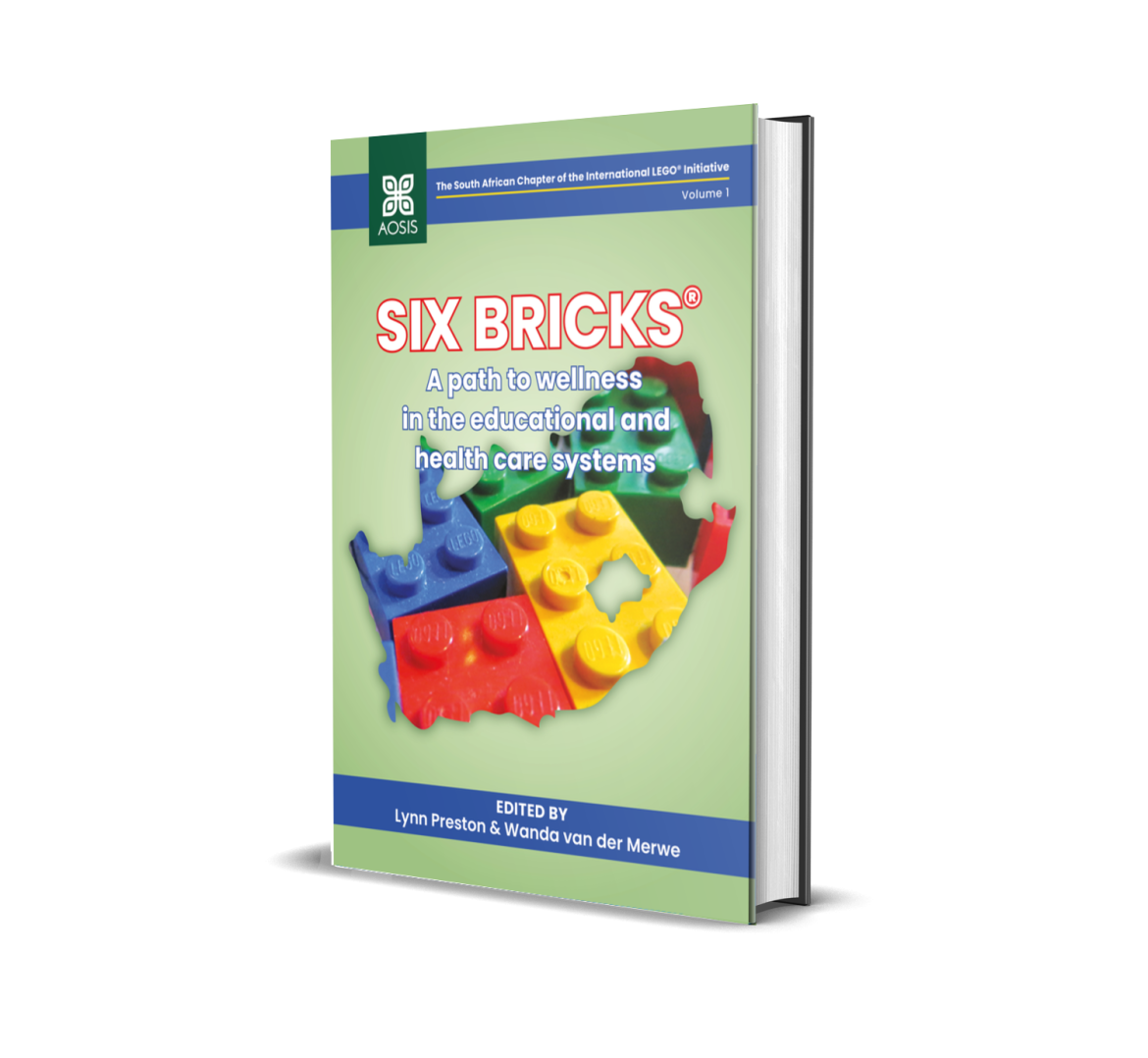Six Bricks®: A path to wellness in the educational and health systems is an open-access book published by AOSIS Scholarly Books.
The Six Bricks® initiative is a teaching and learning method that encourages focused engagement in the classroom by all learners, from the foundation phase to adulthood. By using six simple, colourful DUPLO® bricks, an element of play is introduced into a situation that inevitably leads to all individuals focusing and interacting. This is one of the major contributions to all teaching and learning disciplines and promotes the audience to learn with enjoyment, enthusiasm and concentration. Along with this, communication is promoted, sparking unimaginable creativity and creation.
This book provides the reader with an alternative focus to the original educational application of the Six Bricks® activities. This Six Bricks® initiative focuses on the therapeutic application and processes in communities, schools and within individuals themselves. As each author has had an intimate connection with Six Bricks® initiative, they are all more than qualified to provide their autoethnographic reflections on this initiative, which holds so much promise and excitement for learning and teaching. Therefore, each author’s contributions were original and personalised, providing a new field in the avenues of research in the South African context, as South Africa does not have – as yet – much research on this topic. The methodology used in this qualitative research study was primarily from each author’s perspective; thus, their self-reflection and anecdotal personal experiences form the core of these chapters. Therefore, this autoethnographic is a self-reflective form of writing which involves self-observation and reflective investigation in the context of ethnographic fieldwork and writing.
Copyright (c) 2023 Lynn Preston, Wanda van der Merwe (Volume editor)
‘Learning is not the learning of facts, it’s rather the training of the mind to think’ – ALBERT EINSTEIN.
This thought-provoking quote summarises and highlights the chapters presented in this scholarly book. South Africa faces a literacy crisis preventing young learners from attaining crucial creative thinking and problem-solving skills. Children continuously learn, and their brains are still forming and developing. To ensure optimal development, learners need to be provided with the opportunity to grasp concepts essential for further learning, such as describing colours and rote counting, to name two aspects being taught using the LEGO® Six Bricks methodology and games designed for use with the bricks to encourage these skills. This book outlines the need to introduce innovative teaching and learning modes in South Africa by employing the Six Bricks teaching methodology to stimulate learners to learn while enjoying the learning process. Making learning fun is essential for encouraging children (and adults) to interact with one another in a positive manner. The authors illustrate that the concept of Six Bricks is designed to stimulate learners of all ages in the classroom to attain skills, knowledge and the mindset needed for success in life. The chapters in this book explicitly illustrate how Foundation Phase learners can benefit from the Six Bricks methodology to achieve the requisite literacy areas and pre-reading skills in a way that involves learning while having fun. The authors explain how various games were employed using LEGO® bricks to encourage learning through play. The book also covers the introduction of the LEGO® Six Bricks teaching methodology in the Mpumalanga province of South Africa, along with the team at the Africa Unit for Transdisciplinary Health Research (AUTHeR) at North-West University, South Africa. The book represents a significant contribution to the field of educational sciences and presents well-worth reading and research material for scholars by scholars.
Prof. Margaret Williams, Department of Information Technology/Centre for Community Technology,
Faculty of Engineering, Nelson Mandela University, Gqeberha, South Africa

